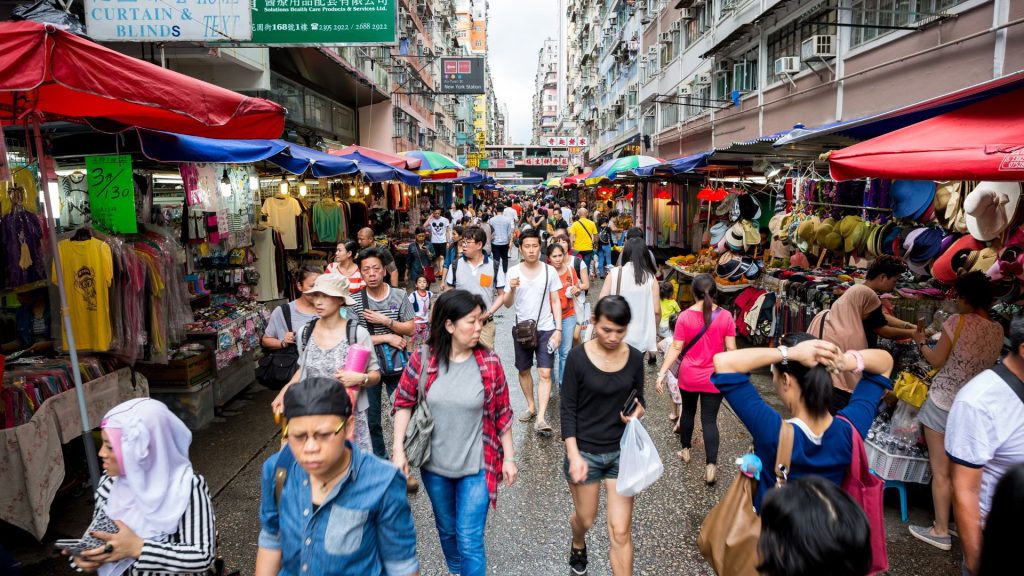Hong Kong and Singapore have related laws and regulations for AML/KYC. AML compliance is an important aspect of the financial sector of every country because it aids in the prevention of money laundering, terrorist financing, and fraud. Companies that fail to comply with AML regulations risk significant fines and reputational damage.

Hong Kong and Singapore KYC/CDD Laws and Regulation
Hong Kong introduced its anti-money laundering and counter-terrorist financing framework on 1st March 2018. The law regulates the rights and obligations of legal persons and natural persons in preventing and detecting money laundering and terrorist financing. The law also contains provisions regarding customer screening, identification, and verification of customers, and the reporting of unusual transactions.
As per the requirements of Hong Kong regulations, these are the following ID attributes required for the purpose of identifying a natural person or Individual from official documents.
● Full Name
● Date of Birth
● Nationality
● Unique Identification Number (identity card number or passport number) and document type
Perform verification of the identity on the basis of independent sourced documents and documents must provide reasonable reliability to the confirmation of the identity in Hong Kong.
In 2019, the government of Singapore passed the Payment Services Act (PSA), which took effect in January 2020. The Act details the regulatory expectations for payment service providers. The PSA designates the Monetary Authority of Singapore (MAS) as responsible for payment compliance, and responsible for pursuing the allegations involving money laundering within the country’s financial institutions.
While Singapore maintains one of the lowest domestic crime rates in the world, its status as a major global financial center inevitably exposes it to ML/TF risks. The bulk of Singapore’s exposure to ML/TF risks arises from offenses committed overseas. In particular, Singapore’s status as both a major global financial center and an international transport hub makes it vulnerable to becoming a transit point for illicit funds generated throughout East and South East Asia.
The primary law in Singapore relating to money laundering is the Corruption, Drug Trafficking, and Other Serious Crimes (Confiscation of Benefits) Act (CDSA). In 2016, Singapore underwent the FATF Mutual Evaluation Process and the subsequent report notes strong laws but weak enforcement. Anyone who wants to start a business in Singapore must follow the Know Your Customer (KYC) rules to verify that their identification is legitimate and transparent.

Companies should supply the following information before the screening process:
- Proof of identification (Valid IDs, Residence, Date of Birth, Nationality of shareholders and members of the beneficial owners).
- A copy of the Board of Directors’ decisions.
- A copy of the company’s Memorandum of Association.
In 2015, Singapore’s AML/CFT Steering Committee published a national AML/CFT Policy Statement. This Statement, which is posted on the websites of the Ministry of Home Affairs (MHA), Ministry of Finance (MOF), and the Monetary Authority of Singapore (MAS), reflected long-standing policy objectives:
- Detect, deter and prevent money laundering, associated predicate offenses, and terrorism financing.
- Protect the integrity of its financial system from illegal activities and illicit fund flows.
To achieve these policy objectives, eight principles have been identified:
- Allocate resources on a risk-sensitive basis.
- Maintain the close policy and operational coordination and cooperation across the government.
- Take a preventive approach that combines tough licensing and comprehensive reporting requirements, strict AML/CFT regulations, and risk-based supervision of the relevant financial and non-financial sectors.
- Enhance private sector stakeholders’ understanding of money laundering/ terrorist financing risks and promote a culture of compliance.
- Take decisive and deterrent law enforcement action against money laundering/ terrorist financing activity, including that relating to foreign crimes.
- Disrupt drug dealing and other serious offenses early to prevent proceeds from being laundered.
- Assist other jurisdictions through formal and informal channels spontaneously and on request.
- Rigorously implement and contribute to the development of international standards.
In January 2014 the MOF and the MAS significantly updated their view of the country’s money laundering risks through the publication of Singapore’s first National Money Laundering and Terrorist Financing Risk Assessment Report. The report covers 14 financial sub-sectors and eight non-financial sectors. The assessment takes into account Singapore’s economic and geographic environment, and its legal, judicial and institutional framework, as well as crime trends.
Emerging risks have also been identified for further study. The country has one of the lowest crime rates in the world, so its principal exposure to money laundering and terrorist financing risks arises from offenses committed overseas. Foreign predicate offenses constituted 34% of all money laundering convictions between 2007 and 2011 and the amount of foreign criminal proceeds seized amounted to SGD265 million. The main conduits were banks, remittance agents, shell companies and individual money mules.

Final Thoughts
Since the 2018 report, the Hong Kong government has taken significant steps to improve the AML/CTF counter-proliferation financing regime, and the report recognizes the government’s ongoing commitment to addressing new and emerging risks. The Financial Secretary states that the government “is committed to ensuring Hong Kong remains one of the world’s safest and cleanest cities in which to work, do business and enjoy life”. Singapore has a strong legal and institutional framework in place to combat money laundering and terrorist financing. Singapore’s AML/CFT coordination is sophisticated and includes all relevant competent authorities. Authorities have a reasonable understanding of their ML/TF risks and are taking steps to mitigate them.








